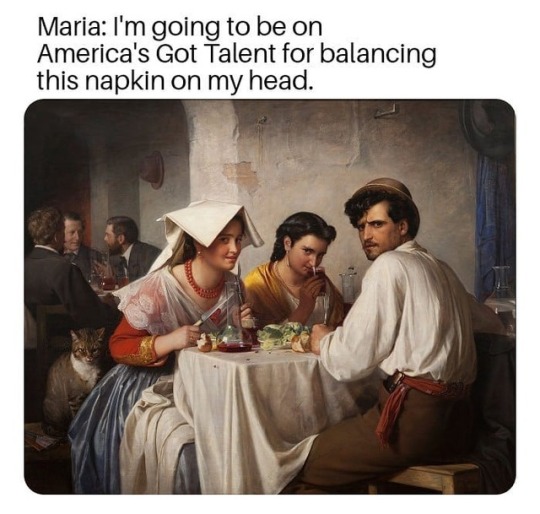AAAAAIGHT
Here's what most tennis fans, coaches, and pundits and commetators will see as talent
- flashiness
- pretty shots
- making highlight reels
- athleticism
- touch
- getting early results
- tanking matches
- omg one handed backhand - see pretty shots
Here's what they'll ignore completely
- Very obvious technical limitations
- Strokes that are quick to set up
- Shot reliability
- Taking the ball early
- Clean hitting
- Accuracy
- Returning
Seriously that's all there is to it.
- Gasquet is a huge talent cause his backhand looks pretty, but his serve and forehand are technical garbage.
- Paire has the worst forehand in history that increases thework load of opthalmologists around the world cause people get spontaneous cataracts from seeing it.
- Gael Monfils is perhaps the biggest physical talent in tennis history for Bo3, but he lacks all the clean hitting
- Dimitrov has all the tools to make highlight reels, his shots kinda look like Fed, but his serve and backhand are technically not great and his forehand timing isn't great, so he lacks all the basics (serve+1/forehand/return)
- Shapovalov is just not a clean hitter. He takes huge cuts but can't hit 3 balls inside the stadium if his life depends on it
- Nishikori is just vertically challenged + he has a bad serve technique. Being under 180 gets you nothing but a lack of reach and a lack of serve and power. Technically very talented baseliner
- Del Potro is just one of those dudes who'd be in the 1-4 Slam range in any era. Kinda overrated in my opinion cause his serve should be better with how tall he is and his backhand and movement were never that great
- Chung. Can't serve and is only impressive from the baseline when he's redlining. His average level is average, his bad level gets bageled left right and centre. He beat Djokovic once, that's all there is to him
- Kyrgios. Only talented at serving and flashy shots. Can't properly attack with his forehand cause it takes 2 years to hit one, can't return, can't construct a point. Most overrated talent in history
- Fognini, technically terrible serve. Very high peaks where he can hang with everyone from the baseline, but he can't reproduce it.
- Gulbis. Forehand technique is the stuff of nightmares. Serve technique is bad too, and only somewhat effective cause Lord Gulbis is insane strong.
- Sock. Has 2 incredible weaknesses
Now the untalented ones
- Berd, really clean ball striker. Doesn't serve big enough, kinda lacks easy raw power vs top guys too
- Incredibly talented baseliner. Like Nishikori, he's vertically challenged. Immensely talented returner
- Simon. Insane tennis IQ, clean ball striker, great mover
- Raonic. Very, very talented server
- Isner/Karlovic. Incredibly talented at being tall
- Anderson, super talented at being tall, also ****ing talent at Grand Slam draws
- Zverev, is generally seen as very talented. He falls somewhere in the middle. Not a flashy game, it's kinda 3 dimensional, his forehand and 2nd serve return do cap his game significantly
- Cilic, mostly just a choker. Peaks are up there with the likes of Delpo and Wawrinka, but they just last shorter
- Edmund, just a solid player with great forehand, not really remarkable or anything
- Goffin, immaculate ballstriker, just underpowered
- RBA, nothing special really, kind of a micky mouse vulture
- PCB. Talented at looking like a rat. HOw the hell did that reach a Slam semi.
Overall, people wrongly treat tennis talent as one dimensional, while it's very multidimensional. Some one dimensional strenghts can carry one to the top 10 (serve), while some one dimensional weaknesses can break somebody's chances at winning Slams.
Generally, you want players who can move great, have great stroke mechanics that
1. Don't limit power
2. Are quick and enable one to take the ball early
3. Have an open racket face for a long time so the variability due to tiny mistimings isn't huge (Delpo is the prime example of this)
Then there's things like movement, tall guys need to serve amazing, returning and reaction times add another dimension, and then there's transition game and net game and touch for more creative poitns that will always boost %points won a little bit.
Then you look for players who's strenghts complement each other and can make up for the weaknesses. I think Nadal is an example, cause while his serve is definitely underhwhelming for most of his career, it can work disgustingly well if his forehand is firing, and especially on grass his hold game is rather narly.
Then there's certain games that will work well vs weaker players but just stop working vs top players, and at the top level I think different qualities start to matter a little more. That's why Ferrer has like 30 titles, while having 0 wins over Federer for example.
Every player. EVERY SINGLE PLAYER has some weaknesses in one way or the other. If you look at tennis as 4 seperate games, being 1st serve points, 2nd serve poitns, and 1st and 2nd return points, no single player is hugely talented at all of them. But the greats of today are at least great at 2 or 3 of them, while being acceptable in the others.
Fed excells at 1st and 2nd serve points and 1st serve return. His 2nd serve return has always been his greatest weakness.
Djokovic excells at 1st and 2nd serve return and 2nd serve points. His 1st serve points aren't weak
Nadal excells at 2nd serve and return points, where he scores off the charts
Murray's return stats are just immaculate, and his great baseline game makes his serve stats passable despite the weak serve.
Yadayadayada
In short, the Big 4 are easily the players on Tour with the fewest weaknesses. Murray has the weak 2nd serve, and the disparity in results for him vs the field and the Big 3 is tremendous. They have all the things I mentioned earlier. They don't have problems generating pace, incredibly reliable strokes, they're incredible athletes and they can generally neutralize almost any game type and exploit any player who inevitably has more weaknesses than they have.
I am not saying the Big 4 have no weaknesses, I am rather saying they're minor. Rafa could serve more dominantly and he could return more aggressively. Minor. Fed's 2nd serve return game is pretty weak, but the other 3 stats are incredible. Djokovic' transition game has lost him a few matches, but almost nobody can consistently exploit it. Murray's the only one with 2 weaknesses, being the 2nd serve and the forehand lacking reliable offensive power.
Now, looking at the younger generation. They all have much more weaknesses than the Big 3. It's not even funny. Their stats are absolutely terrible compared to the Big 4 when they were 21. And yet some of them are poised to win a manure quantity of them cause somebody freaking has to.
**** this got big




